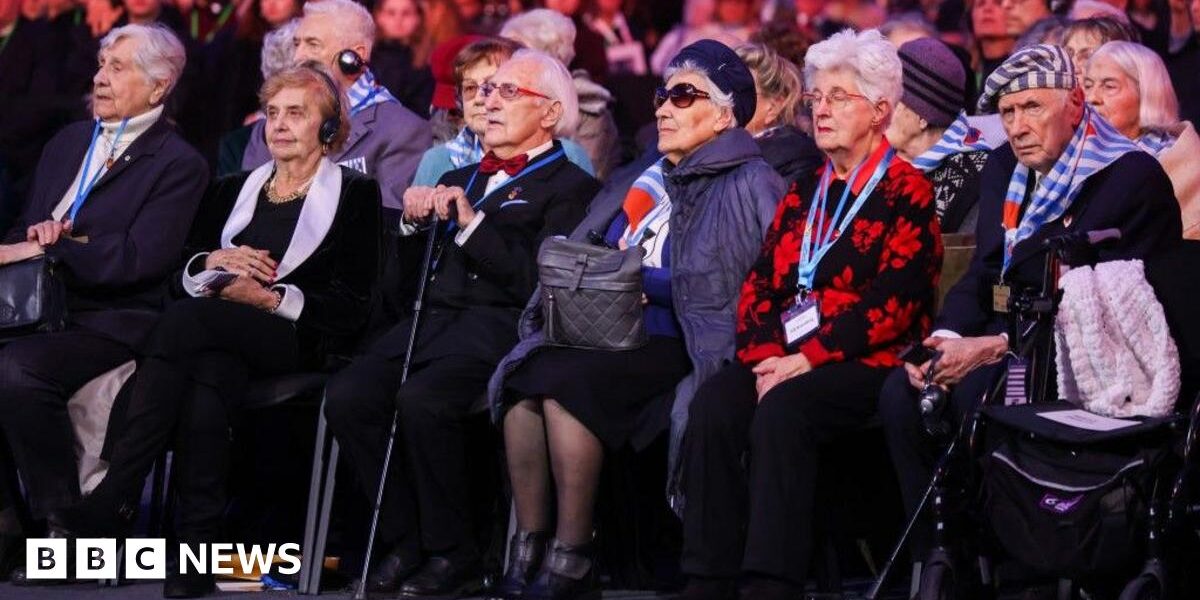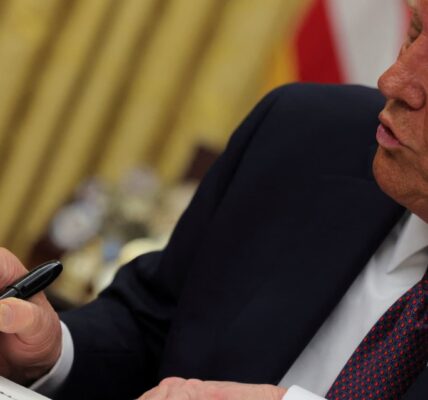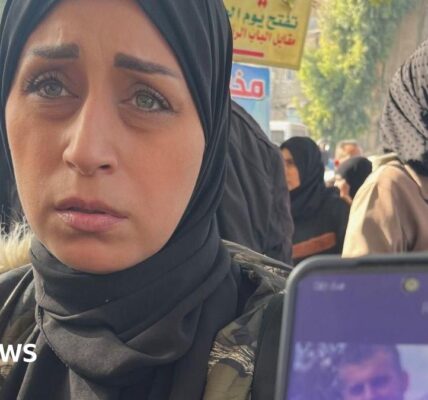As he toured the camp he laid a wreath in memory of the victims.
Sources close to the King said it was a profound visit for him, and one aide described it as a “deeply personal pilgrimage”.
Hours earlier, he said remembering the “evils of the past” remained a “vital task”.
Visiting the Jewish Community Centre in Krakow, which he opened 17 years ago, the King said the Krakow Jewish community had been “reborn” from the ashes of the Holocaust, and that building a kinder and more compassionate world for future generations was the “sacred task of us all”.
Polish-born British survivor Mala Tribich, 94, was liberated from the concentration camp at Bergen Belsen, and attended Monday’s event at Auschwitz.
“We’ve seen the consequences of the camps and the beatings and hate,” she told the BBC. “And what [children] are taught under the circumstances of a despot can be so damaging, not only to them but to everything around. So we really must guard against it.”
Lord Pickles, the UK’s special envoy for post-Holocaust issues, who is chair of the International Holocaust Remembrance Alliance, warned that “distortion” was threatening the legacy and historical truth of the Holocaust.
Having listened to the survivors inside the tent at Birkenau, he told the BBC that “we saw a transfer from memory into history”, because it was now very unlikely that survivors would be delivering speeches for much longer.
“That’s very daunting and I don’t believe we’re in a post Holocaust world.”
A survey across eight countries published last week suggested a widespread belief that another Holocaust could happen again. Concern was particularly high in the US and UK, according to the survey of 1,000 people in each country for Claims Conference.





